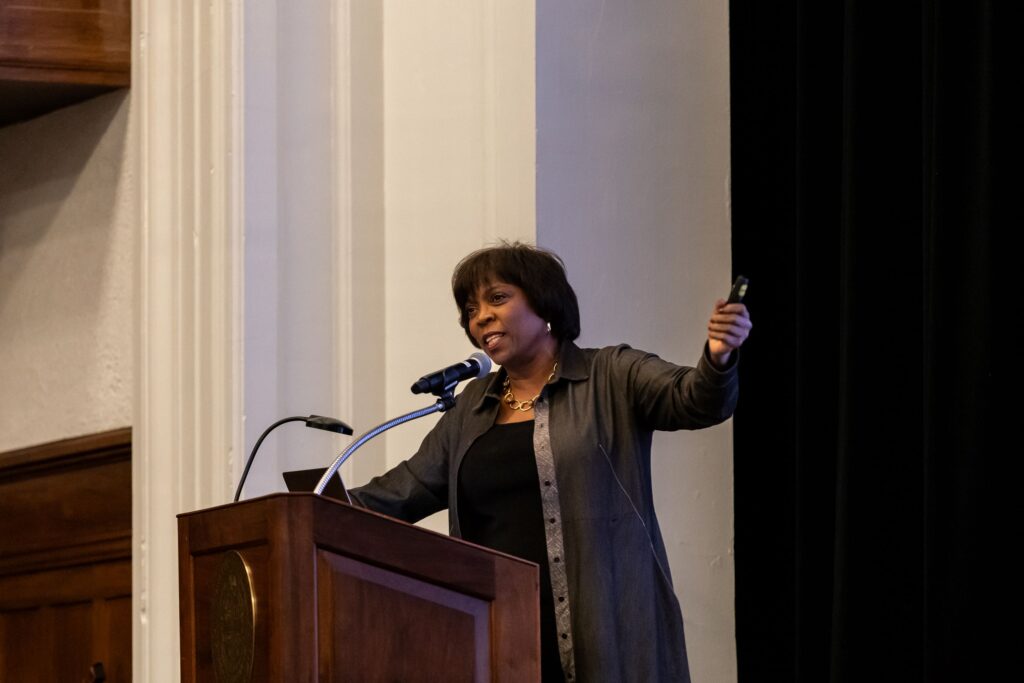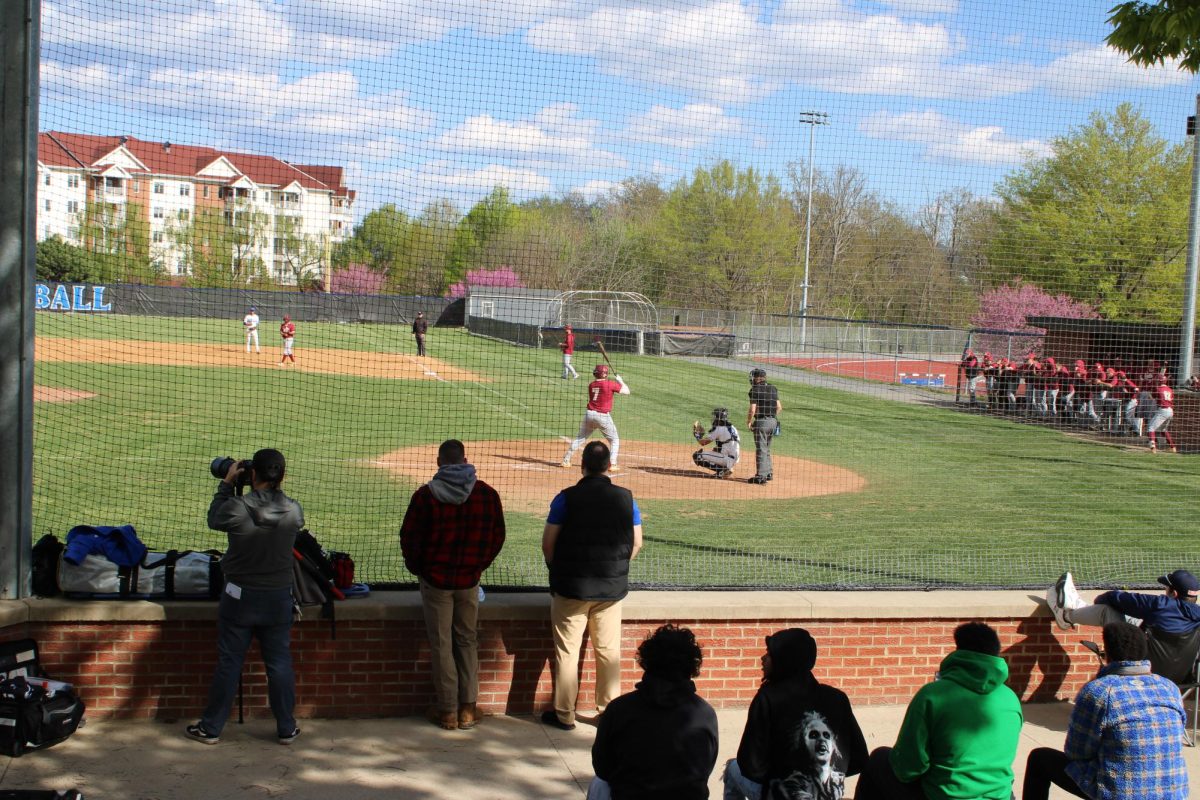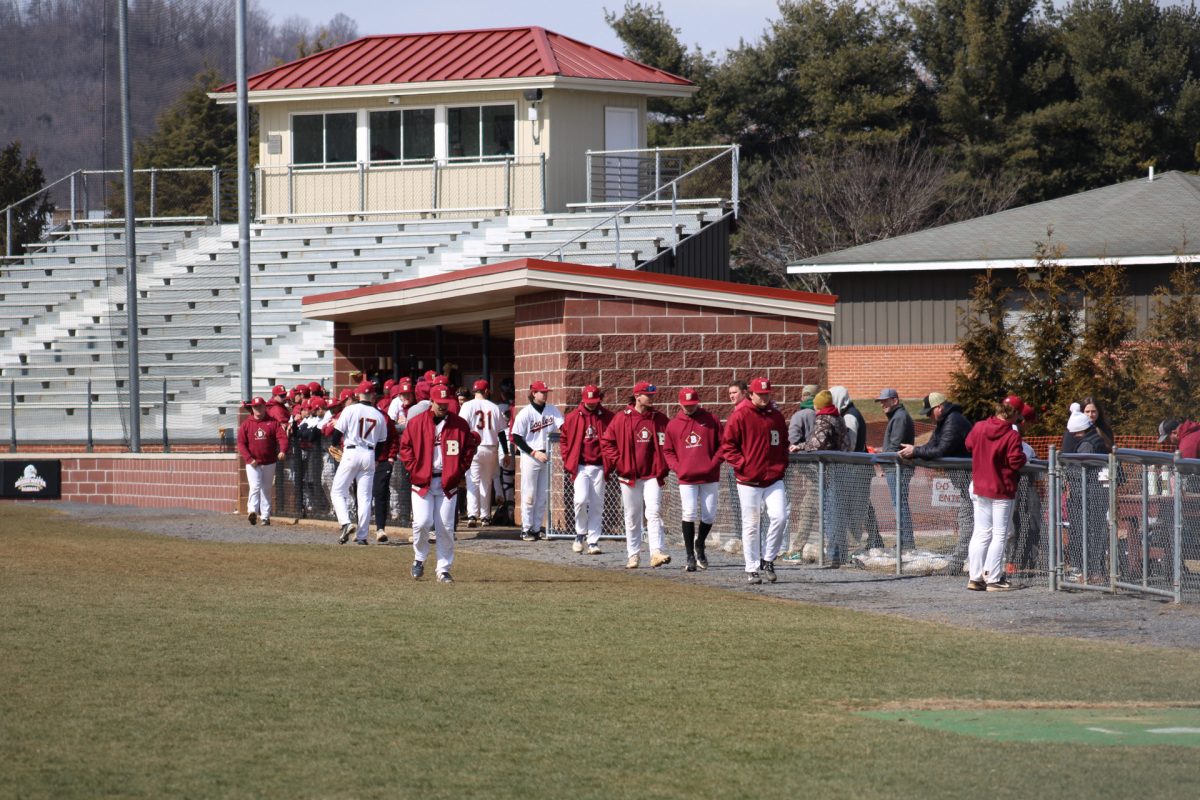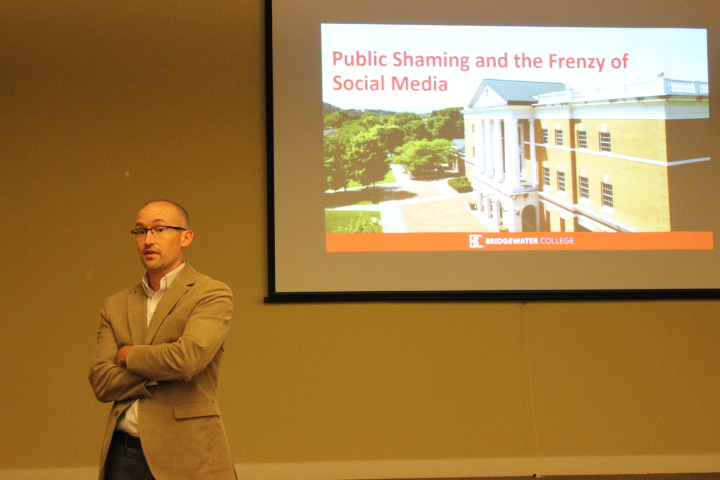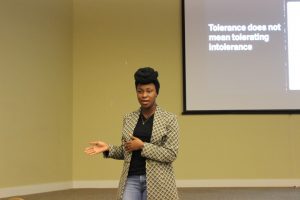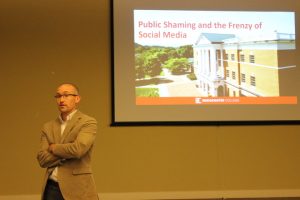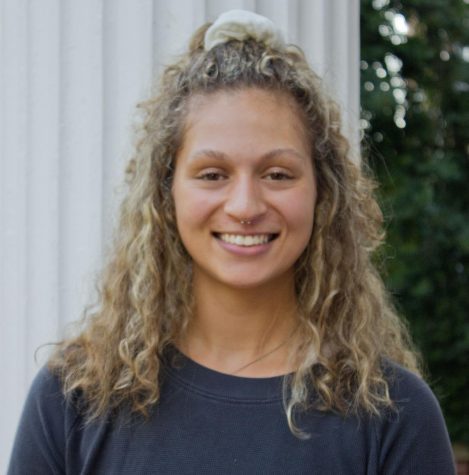Discussing Public Shaming on Social Media
Is “Cancel Culture” Necessary?
October 14, 2019
Bridgewater, Va.- Thursday, Oct. 10, Associate Dean of Students and Psychologist Neal Rittenhouse and Area Coordinator Ny’Erica Young led a conversation on shaming and social media. Key questions raised during the presentation surrounded the idea of “cancel culture”–the social condemnation and isolation of an individual by a majority due to socially unacceptable behaviors.
Rittenhouse started the conversation on shaming by asking, “When you hear the word [shame], what comes to mind? I’m not sure we always use it in the way we intend to.”
“We shame in sort of a colloquial way now,” Rittenhouse stated. Just as sexuality and gender are two concepts thought of on a spectrum today, Rittenhouse found shame can be thought of similarly. In other words, shame can be helpful to an extent.
Specifically, Rittenhouse identified helpful guilt and unhelpful guilt as two separate entities from shame. Helpful guilt can be defined as a type of guilt that helps people grow–because breaking objective definitions of right and wrong aids in learning and building as an individual. Unhelpful guilt, contrarily, explains the guilt a person may feel due to holding unrealistically high standards of themselves and is unhealthy.
Speaking on social movements that confront oppression, Young described how “social constructive criticism can lead to public shame,” as newer generations assert they will not tolerate what past generations have. Young said these movements are intended to be positive and conducive to social justice.
While Rittenhouse and Young emphasized how important critiquing others can be to fuel change, the administrators also assured students that shaming often takes a different form. While it may be unintentional to critique someone to the point of embarrassment, this does not mean consequences for the individual will not follow.
Shaming can be used to put down and ostracize, sometimes without knowing the full story first. An example used by Young at the event was the “world’s worst aunt,” Jennifer Connell, who media sources reported sued her young nephew for hurting her wrist while hugging her.
The story went viral on several platforms and was debated heavily across news channels and online. The aunt revealed, despite the misconceptions spread about her, that the suing was all due to technicalities. In other words, she was not mad at her nephew but simply needed to use his name in order to have the family’s homeowner’s insurance pay medical bills.
This story was an example of unnecessary ridiculing caused by clear misinformation that genuinely does not impact most viewers in any case. Young stated the same occurs with students and social media. Young said, “the majority of the stuff that we retweet or we get mad at people about [has] nothing to do with us, it’s not going to affect our lives, it’s not going to affect the people we care about…this happens more often than not.”
Rittenhouse concluded, “shame doesn’t give way to change as much as sustained dialogue and effort,” encouraging students to remember the importance of conversation to help themselves and others in their community grow, be self-reflective and engage change.


